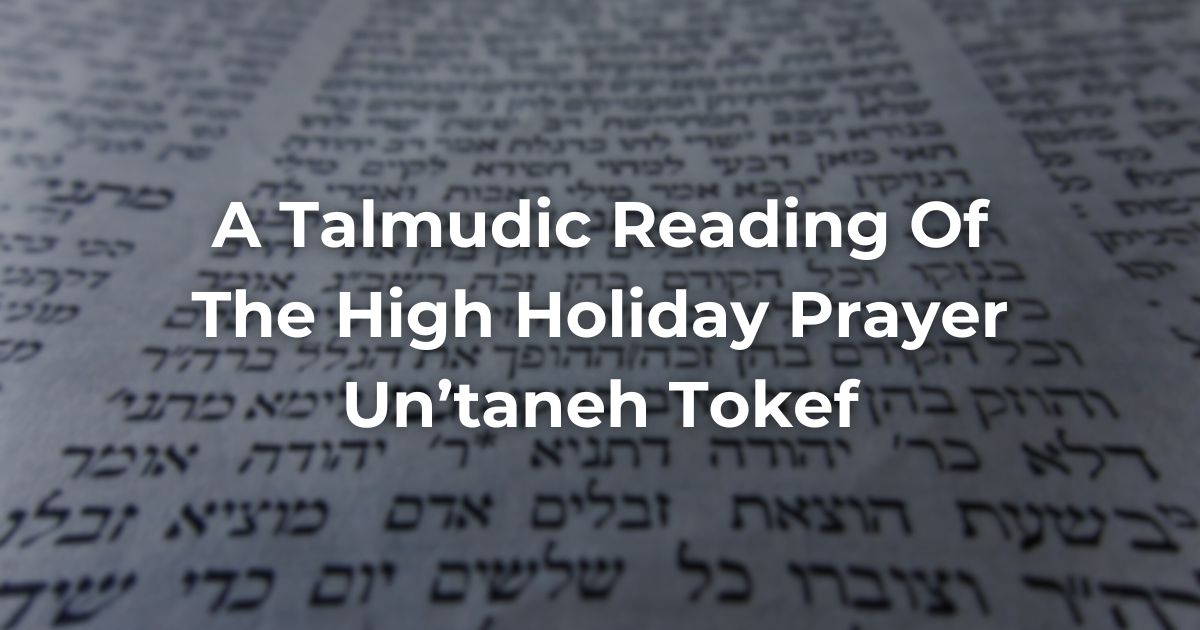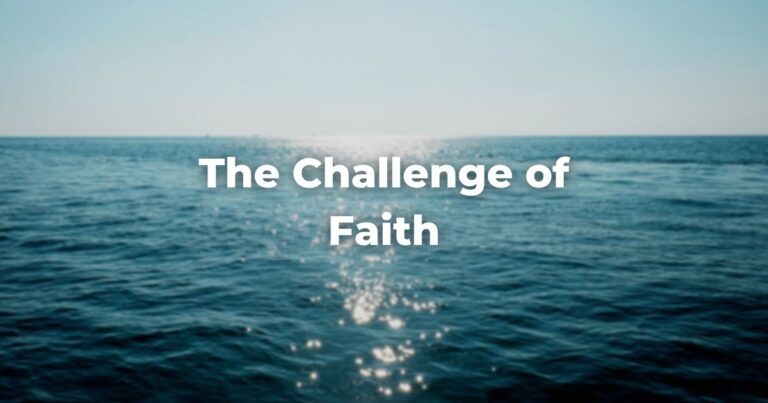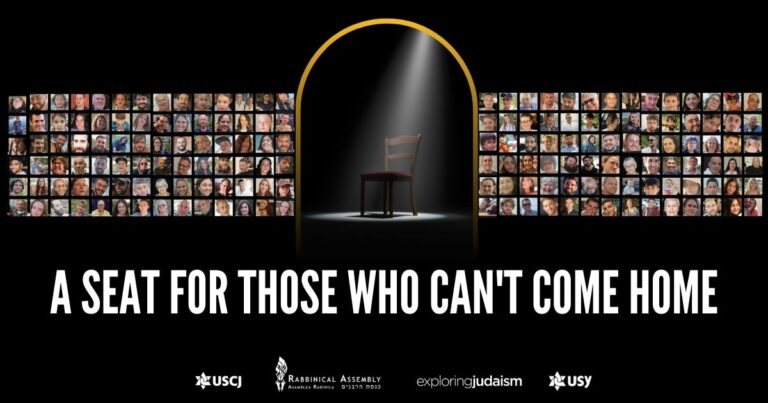This piece is part of Exploring Judaism’s 5785 High Holiday Reader. Download the whole reader here.
This is an abridged version; the full version can be found here, originally published in Zeramim.)
Jews flood the synagogues on Rosh Hashanah. Many come to hear the shofar blown, but they also come to hear, at the beginning of the repetition of Musaf, the Un’taneh Tokef (ונתנה תוקף) prayer.
These words mean, “We will acknowledge, (נתנה netaneh) the power, (תוקף tokef) of this day’s holiness].” Interestingly, this prayer is a feature of the Ashkenazi rite but rarely appears in Sephardi rites.
What makes this prayer so attractive? Could it be the poignant question, “Who will live and who will die?” Or the daunting list of ways in which one may die?
Most people think that the message of this piyyut, or liturgical poem, is that our fate is in God’s hands, that it is God who determines how long we live, and that we have, at best, little control over our future. These ideas are borne out or perhaps suggested, by many of the English translations of the climactic line of this prayer, ut’shuvah, ut’filah, uz’dakah ma’avirin et ro’a hagezeirah (ותשובה ותפלה וצדקה מעבירין את רע הגזירה).
Here are a few common translations:
- “But repentance, prayer, and charity temper judgment’s severe decree.” Gates of Repentance (Reform, 1978)
- “But through return to the right path, through prayer and righteous giving, we can transcend the harshness of the decree.” Mishkan Hanefesh (Reform, 2015)
- “But repentance, prayer, and righteousness avert the severe decree.” High Holiday Prayer Book (Conservative, 1951)
- “But repentance, prayer, and deeds of kindness remove the severity of the decree.” Mahzor Hadash (Conservative, 1977, 2001)
- “But T’shuvah, T’fillah, and Tz’dakah have the power to transform the harshness of our destiny.” Mahzor Lev Shalem (Conservative, 2010)
- “But repentance, prayer, and charity remove the evil of the decree.” Artscroll Mahzor (Orthodox, 1985)
- “And repentance, prayer and charity help the hardship of the decree pass.” Lawrence Hoffman’s Prayers of Awe series (This is the only translation of this group that begins with “and” rather than “but.” I will argue below that “but” makes more sense.)
- “But Repentance, Prayer, and Charity annul the severe Decree.” Wikipedia, “Unetanneh Tokef
These translations share two ideas: they call God’s decision about a person’s fate in the coming year a “decree,” and they see the outcome of repentance, prayer, and acts of kindness as reducing the severity of the decree but not eliminating it. (I am rendering zedaqah (צדקה) as acts of kindness.) Only Wikipedia, of these translations, says that the three actions can completely cancel it.
In my opinion, most translators have misunderstood the import of this key line of Un’taneh Tokef.
It is clear from the language of the piyyut that the author, whose identity remains unknown, based his piyyut on Talmudic teachings. A good way, therefore, to determine his message is to examine the sources he utilized.
The Jerusalem Talmud
The words ut’shuvah ut’filah uz’dakah, already appear in the Jerusalem TalmudReferring to one of two collections, the Jerusalem and Babylonian Talmuds, edited in the 6th century, that contains hundreds of years of commentary, discussion, and exploration of the ideas in the Mishnah. One could describe it as Mishnah + Gemara = Talmud Read more (Yerushalmi Ta’anit 2:1, 65b), albeit in a different order from the High Holiday prayerbook:
אָמַר רִבִּי לָֽעְזָר. שְׁלֹשָׁה דְבָרִים מְבַטְּלִין אֶת הַגְּזֵירָה קָשָׁה. וְאֵילּוּ הֵן. תְּפִילָּה וּצְדָקָה וּתְשׁוּבָה. וּשְׁלָשְׁתָּן בְּפָסוּק אֶחָד. וְיִכָּֽנְע֨וּ עַמִּ֜י אֲשֶׁ֧ר נִֽקְרָא־שְׁמִ֣י עֲלֵיהֶ֗ם וְיִֽתְפַּֽלְלוּ֙. זוֹ תְפִילָּה. וִֽיבַקְשׁ֣וּ פָנַ֔יי. זוֹ צְדָקָה. כְּמַה דֵאַתְּ אָמַר אֲנִ֗י בְּ֭צֶדֶק אֶחֱזֶ֣ה פָנֶי֑ךָ. וְיָשׁוּבוּ מִדַּרְכֵיהֶ֣ם הָֽרָעִ֑ים. זוֹ תְשׁוּבָה. אִם עָשׂוּ כֵן מַה כָתוּב תַּמָּן. וַֽאֲנִי֙ אֶשְׁמַ֣ע הַשָּׁמַ֔יִם וְאֶסְלַח֙ לְחַטָּאתָ֔ם וְאֶרְפָּא֭ אֶת־אַרְצָֽם׃
R. Lezar said: three things cancel the harsh decree, and they are: prayer, zedakah, and repentance. And all three appear in the same verse: “When My people, who bear by My name, humble themselves and pray” (II Chronicles 7:14)—this [phrase] refers to prayer; “and seek My favor,”—this [phrase] refers to zedakah… “and turn from their evil ways” (ibid.)—this [phrase] refers to repentance. If they do thus, “I will hear in My heavenly abode and will forgive their sins and heal their land” (ibid.).
This teaching of R. Lezar appears in tractate Ta’anit, a volume dealing with communal fasts, those instituted by leaders of the community when a drought, locusts, or other calamity seems imminent. (MishnahA collection of rabbinic teachings edited in Israel around 225 CE. Organized in six sedaraim by subject matter and dealing with both ritual and civil law. Both the Jerusalem and Babylonian Talmud are expansive discussions of the Mishnah. Read more Ta’anit 3:5-7) People back then understood these untoward events as punishment by God for their misdeeds. R. Lezar suggests that, if the members of the community pray, engage in acts of kindness, and turn from their evil ways, they may influence God to withhold retribution.
His fitting prooftext from II Chronicles is God’s response to King Solomon’s entreaty. Upon dedicating the temple he built in Jerusalem, the king asked God to hearken to the pleas of people who will come there to ask for deliverance. God replied that if they submit themselves to Him and abandon their evil ways, He will forgive their sins. R. Lezar’s statement shows that the phrase ut’shuvah ut’filah uz’dakah originated in a context other than the High Holidays.
The Babylonian Talmud
We turn now to the Babylonian Talmud. R. Yizhaq, who lived a little later than R. Lezar, and possibly was his student, appropriated R. Lezar’s teaching for a different but related purpose. (Both are land of Israel amoraim, (אמוראים scholars of the rabbinic tradition in the period immediately following the compilation of the Mishnah.)
R. Yizhaq’s teaching appears on Rosh Hashanah 16b. The amora presents a collection of eight statements related to the holiday. The sixth, below, is of particular interest:
וא״ר יצחק ד’ דברים מקרעין גזר דינו של אדם אלו הן צדקה צעקה שינוי השם ושינוי מעשה צדקה דכתיב (משלי י, ב) וצדקה תציל ממות צעקה דכתיב (תהלים קז, כח) ויצעקו אל ה’ בצר להם וממצוקותיהם יוציאם שינוי השם דכתיב (בראשית יז, טו) שרי אשתך לא תקרא את שמה שרי כי שרה שמה וכתיב וברכתי אותה וגם נתתי ממנה לך בן שינוי מעשה דכתיב (יונה ג, י) וירא האלהים את מעשיהם וכתיב (יונה ג, י) וינחם האלהים על הרעה אשר דבר לעשות להם ולא עשה וי”א אף שינוי מקום דכתיב (בראשית יב, א) ויאמר ה’ אל אברם לך לך מארצך והדר ואעשך לגוי גדול:
R. Yizhaq also said: Four things rip up a person’s verdict and they are: zedakah, crying out [to God], changing one’s name, and changing one’s behavior. Zedakah, for it says, “Zedakah saves from death” (Proverbs 10:2); Crying out, for it says, “they called out to God in their difficulties, and God will deliver them from their distresses” (Psalms 107:6); Changing one’s name, for it says, “Sarai, your wife, shall no longer be called by this name but rather Sarah shall be her name,” and the verse continues, “and I will bless her and give her a child” (Genesis 17:15); Changing one’s behavior, for it says, “God saw their deeds,” and the verse continues, “God changed His mind about the punishment He was about to visit upon them” (Jonah 3:10). And some say, also changing where one lives [will rip up a person’s verdict]. As it says, “God said to Abram, go forth from your birthplace,” and then it says “And I will make you into a great nation” (Genesis 12:1,2).
Before comparing R. Yizhaq’s statement in the Babylonian Talmud to R. Lezar’s in the Yerushalmi (i.e., the Talmud of Jerusalem Talmud), there is one more text to bring into this conversation. On the same page of Talmud as R. Yizhaq’s High Holiday “sermon,” we find the now-famous statement that, on Rosh Hashanah, God opens the Book of Life and the Book of Death and decides the future of each individual:
א״ר כרוספדאי א״ר יוחנן שלשה ספרים נפתחין בר״ה אחד של רשעים גמורין ואחד של צדיקים גמורין ואחד של בינוניים צדיקים גמורין נכתבין ונחתמין לאלתר לחיים רשעים גמורין נכתבין ונחתמין לאלתר למיתה בינוניים תלויין ועומדין מר״ה ועד יוה״כ זכו נכתבין לחיים לא זכו נכתבין למיתה:
Said R Krospedai in the name of R. Yohanan: Three books lie open on Rosh Hashanah: one for [inscribing] those who are completely evil; one for inscribing those who are completely righteous, and one for those in the middle. The completely righteous are immediately inscribed [on Rosh Hashanah] and sealed for life; the completely evil are immediately inscribed and sealed [on Rosh Hashanah] for death. As for those in the middle, their fate remains undecided from Rosh Hashanah until Yom Kippur. If they merit, they are inscribed for life; if not, they are inscribed for death.
This statement makes it very clear that on Rosh Hashanah there are only two fates that God metes out to His subjects: life and death. It follows that, when R. Yizhaq says that four acts on Rosh Hashanah can cause God to tear up a person’s verdict—a gezar din (גזר דין) the verdict the amora most likely refers to is death. (When R. Lezar used the expression “harsh decree” (גזירה קשה gezeirah qashah) he was referring to calamities like droughts which lead to death. Thus, when R. Yizhaq employs the term gezar din in conjunction with Rosh Hashanah, a term similar to R. Lezar’s gezeirah qashah, it most likely connotes a verdict of death in the coming year.)
So what do we learn from comparing these two texts?
If we look closely, we will see that R. Yizhaq issued a modified R. Lezar’s teaching to make points of his own.
The first modification lies in R. Yizhaq’s increasing the number of actions from three to four. R. Yizhaq repeats R. Lezar’s request for acts of kindness, prayer, and repentance, and then adds a fourth, “changing one’s name,” which is way of adopting a new identity. He convincingly argues that, in the Bible, change of name necessarily means change of role and fate, as it did for Abraham and Sarah. As for changing one’s deeds, he cites an apt verse from Jonah 3:10: when God saw the improved behavior of the people of Nineveh, He rescinded His plan to destroy the city and its inhabitants.
The second way in which R. Yizhaq modifies R. Lezar’s teaching is even more significant: instead of claiming that three actions can help an entire community avoid a common disaster, R. Yizhaq asserts that those same three actions, plus one more, if performed on Rosh Hashanah, can save an individual from a personal disaster, i.e., from God’s verdict of death. R. Yizhaq is thus transforming Rosh Hashanah, characterized by the TorahRefers to the first five books of the Hebrew Bible, the Tanakh, also called the Five Books of Moses, Pentateuch or the Hebrew equivalent, Humash. This is also called the Written Torah. The term may also refer to teachings that expound on Jewish tradition. Read more as a day of blasting (teru’ah) and offerings into a day of prayer and repentance and acts of kindness to be performed by an individual for the individual’s benefit. (Numbers 29:1-6; Leviticus 23:24) That is—according to R. Yizhaq, if prayer, acts of kindness, and repentance can save a community from impending disaster, as noted by R. Lezar—it stands to reason that these three actions can do the same for an individual who faces a decree of death. Mishnah Yoma does talk about repentance but gives few details on how to accomplish it. (Mishnah Yoma 8:9)
R. Yizhaq spells out what repentance and related behaviors look like. (See also: Rosh Hashanah 17b) Understanding Rosh Hashanah as a day of judgment made good sense in post-Temple times when many holidays were undergoing change given that offerings were no longer possible.
Re-understanding Un’Taneh Tokef
With these Talmudic texts in the background, we can now turn to Un’taneh Tokef. The prayer’s wording makes it clear that the author was familiar with these Talmudic texts when he composed his poem.
The first paragraph describes God as writing, recording, and sealing, as we saw above in a text from tractate Rosh Hashanah. The second paragraph says that God is like a shepherd who makes each sheep pass under his staff so that he can count them accurately, as stated in Mishnah Rosh Hashanah. (Mishnah Rosh Hashanah 1:2) So too, the prayer continues, again basing itself on the same Mishnah, all inhabitants of the world will pass before God as God decides the fate of each for the coming year.
The third paragraph states that individuals are inscribed on Rosh Hashanah and that their fate is sealed on Yom Kippur. It goes on to say that God decides in this ten-day period how many individuals will pass away in the coming year and how many will be born, who will live out the year and who will not, who will die at the end of his days and who prematurely, and so on.
Following this long list of possible outcomes, both good and bad, the author says that repentance, prayer, and deeds of kindness will “make pass,” i.e., cancel, the evil decree, meaning death. After asserting that so much depends on God, the author surprises his audience by suggesting that there are ways for human beings to change God’s mind, to take control of their own future. He thus provides an incredibly upbeat, optimistic conclusion to the first section of his liturgical poem.
Not everyone agrees with this interpretation of that line of the prayer. The translators cited above argue that the notion of being in control of one’s fate does not follow logically from the preceding paragraphs. At best, they say, one can lessen the harshness of the decree, but not cancel it.
In my opinion, in this climactic passage the poet is saying that our fate is in our own hands. God has a plan for each one of us, but we have it within our power to cause God to alter it. To understand the phrase “who will live and who will die” as asserting that life and death are determined by God alone is to distort what this poet is saying. His point is just the opposite: the actions of the individual can determine his or her own fate. True, God may be thinking of inscribing him or her in the Book of Death, but, the author says, each person has the ability to stay God’s hand.
A key reason this piyyut induces fear and trembling in many people is that they don’t understand it correctly. The fault lies in part with the misleading translations.
The Core Meaning of Un’Taneh Tokef
The correct message of Un’taneh Tokef is based on the teachings of R. Lezar and R. Yizhaq, is that—despite the warnings of awful ways to die—there is a possibility for complete reversal of fate via prayer, acts of kindness, and repentance. That is the core message of Un’taneh Tokef. The author of this liturgical poem has conflated the teachings of R. Lezar in the Yerushalmi and R. Yizhaq in the Bavli; the anonymous poet requires three forms of behavior, precisely those mentioned in the Yerushalmi, but claims that they will save the individual, not the community, from disaster, as in the Bavli.
One more step is needed to clinch this argument, and that is to determine why the author chose to use the word ma’avirin in his key statement, which literally means that the three actions will “make [the decree] pass,” rather than “cancel.” Does the Hebrew word ma’avirin (מעבירין) imply that rather than cancel a decree, God is simply going to downgrade it to something lesser, just “transform” or “temper” it somewhat? I think not. The verb in the Yerushalmi is m’vat’lin (מבטלין) which means to “cancel,” and, in the Bavli, m’qar’in ((מקרעין which means to “rip up.” Both teachings thus speak of total abrogation.
There is a reason that the author of this liturgical poem, who wanted to convey outright cancellation of the harsh decree, chose a verb that is open to more than one interpretation.
By replacing the Talmud’s m’vat’lin and m’qar’in with ma’avirin, the author is not changing the meaning of the verb—it still connotes to cancel—he is just using, for poetic effect, the same verb he used earlier, now giving it an active rather than passive connotation. Unlike sheep passing before a shepherd, people are being told to assert control over their own future.
In this way, the anonymous poet has incorporated into the High Holiday liturgy a Talmudic teaching about our ability to take our fate into our own hands. As stark as is the paragraph describing all the ways that God can punish an individual, the poet’s point is that we can still exercise control over our own destiny.
People are right to crowd the synagogues on Rosh Hashanah and Yom Kippur to hear Un’taneh Tokef. Its message is direct, hopeful, and exhortative. No matter how many misdeeds one has committed in the past year, by means of prayer, repentance, and acts of kindness, one can get a reprieve and start over, tabula rasa. That is the immensely appealing theme of the High Holidays, and of this poem in particular.




